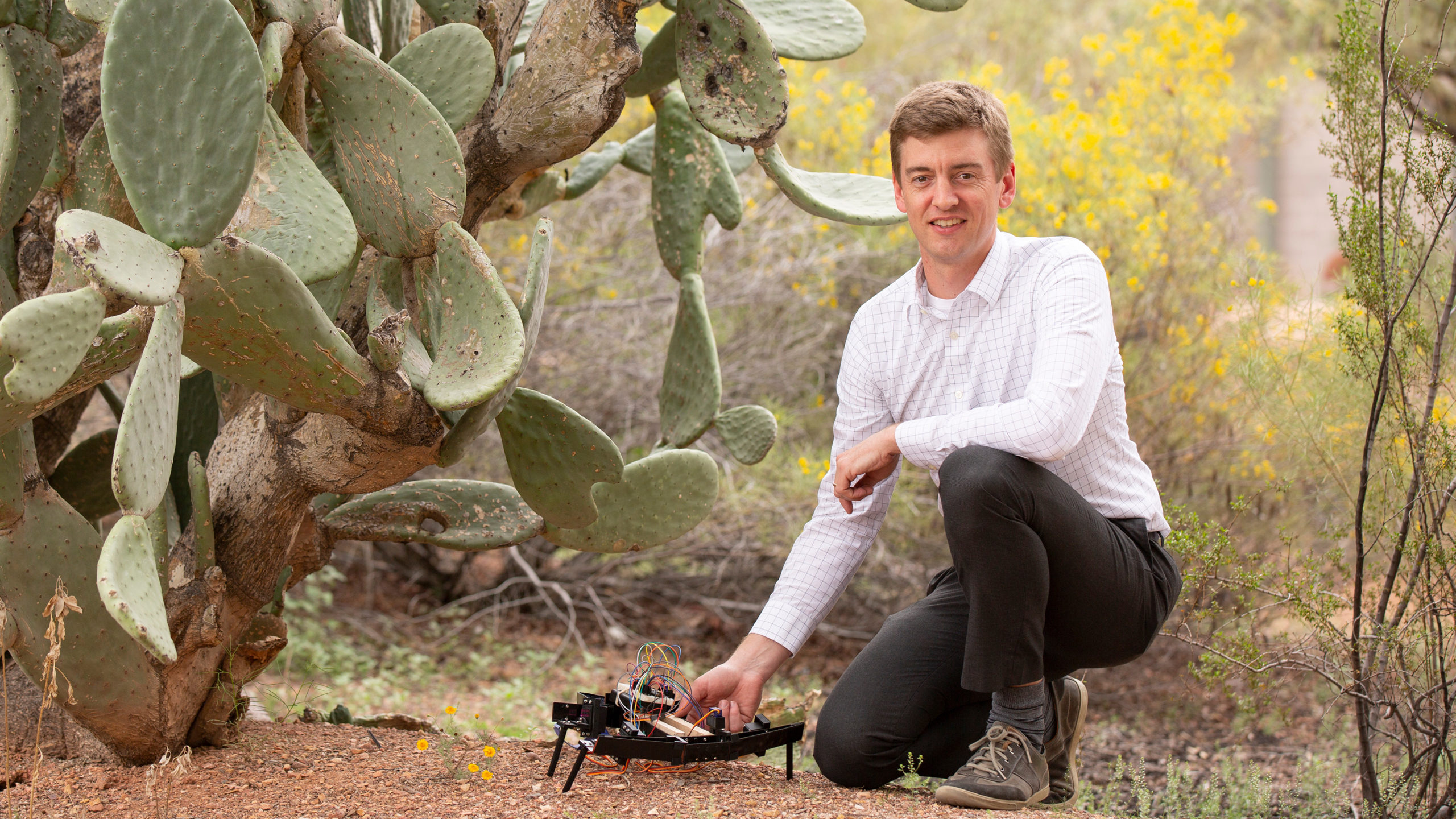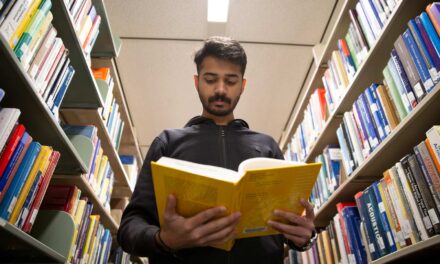
Making robots accessible to all

Above: Daniel Aukes is working to make the development pipeline for robots more accessible by taking advantage of affordable materials with the help of a National Science Foundation Faculty Early Career Development Program (CAREER) Award. Photographer: Erika Gronek/ASU
Twelve faculty members in the Ira A. Fulton Schools of Engineering at Arizona State University received NSF CAREER Awards between November 2019 and April 2020.
The robots we see depicted in popular culture, like R2-D2 from Star Wars or WALL-E, tend to be expensive, generalist robots. The high cost of developing and acquiring these mechanical helpers, in both time and money, makes them unreasonable for many of the activities they are best suited for, such as repetitive tasks in dangerous, unstructured environments.
Daniel Aukes, an assistant professor of engineering in the Ira A. Fulton Schools of Engineering at Arizona State University, is working to make the development pipeline for robots more accessible by taking advantage of affordable materials.
“My lab has innovated a number of design and manufacturing approaches that make it possible to fabricate robots in a matter of hours,” says Aukes. “We use rapid prototyping tools like laser cutting and 3D printing to speed up the process of design and fabrication, making it much easier to go through many design iterations.”
Being able to produce robots that quickly will allow non-robotics experts to prototype cost-effective specialist robots outside the lab.
“The goal of this project is to make robots more ubiquitous, accessible and tunable for newcomers to robotics and for applications in industry, education and academic research,” says Aukes. “Achieving this goal requires a shift toward more affordable materials, accessible fabrication strategies and assistive design software that considers the particular dynamics of cost-efficient motors and materials, as well as the needs of specific applications.”
Aukes’ project is supported by a National Science Foundation Faculty Early Career Development Program (CAREER) Award and its results will impact fields in which this type of specialization is desirable, such as assistive robotics for the elderly, custom agricultural applications and trash pickup in smart cities.
“The robots developed through this project will also serve as an affordable starting point for children to compete in after-school robotics competitions organized by local, youth-focused nonprofits,” says Aukes. “Additionally, the models and templates developed will be integrated into college-level robotics curricula, permitting students to venture deeper into advanced robotics topics earlier in their studies.”
Aukes envisions a future where robots can be printed on demand by non-experts.
“By opening up access to robots in this way,” he says, “not only will we start to realize the full potential of what robots can do for us as a society, but we will also give a wider slice of the population access to the design process, making them more engineering literate.”
Aukes, who runs the IDEAlab on ASU’s Polytechnic campus, came to ASU in January 2016 after being a Wyss Institute Postdoctoral Fellow in Technology Development at Harvard University.
“ASU provided me with a wide range of opportunities to connect and collaborate with faculty,” says Aukes. “The Polytechnic School’s approach toward giving access to rapid prototyping tools to undergrads is very much in line with my research, and allows me to teach classes like ‘foldable robotics’ at the undergraduate and graduate level. Not all schools can support innovative classes like that.”



































